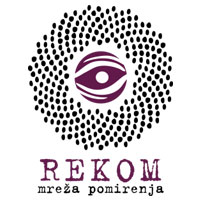


Sorry, this entry is only available in srpski.

Sorry, this entry is only available in srpski.

Sorry, this entry is only available in srpski.

Sorry, this entry is only available in srpski.

 Public memory of war victims is often dominated by ethnocentric narratives as a national strategy, emphasizing the scale of crimes of Other while marginalizing one’s own. What’s missing seems to be not only a moral reckoning but also a continuous historical-didactic, pedagogical, media, museological, and aesthetic debate as the foundation for creating a memory culture that includes remembering the crimes committed in our own name.
Public memory of war victims is often dominated by ethnocentric narratives as a national strategy, emphasizing the scale of crimes of Other while marginalizing one’s own. What’s missing seems to be not only a moral reckoning but also a continuous historical-didactic, pedagogical, media, museological, and aesthetic debate as the foundation for creating a memory culture that includes remembering the crimes committed in our own name.
Memory culture is not necessarily a process aimed at reconciliation with crimes or forgiveness. Rather, it is about learning how to live with memory, recognizing that crimes are a part of our history and collective identity. It is also a process of learning that shared ways of living before the crimes existed and that such ways can be rebuilt through the effort of all actors and socio-political engagement aimed at dismantling identity politics that focus solely on ethnic-national identities.

Sorry, this entry is only available in srpski.

Sorry, this entry is only available in srpski.